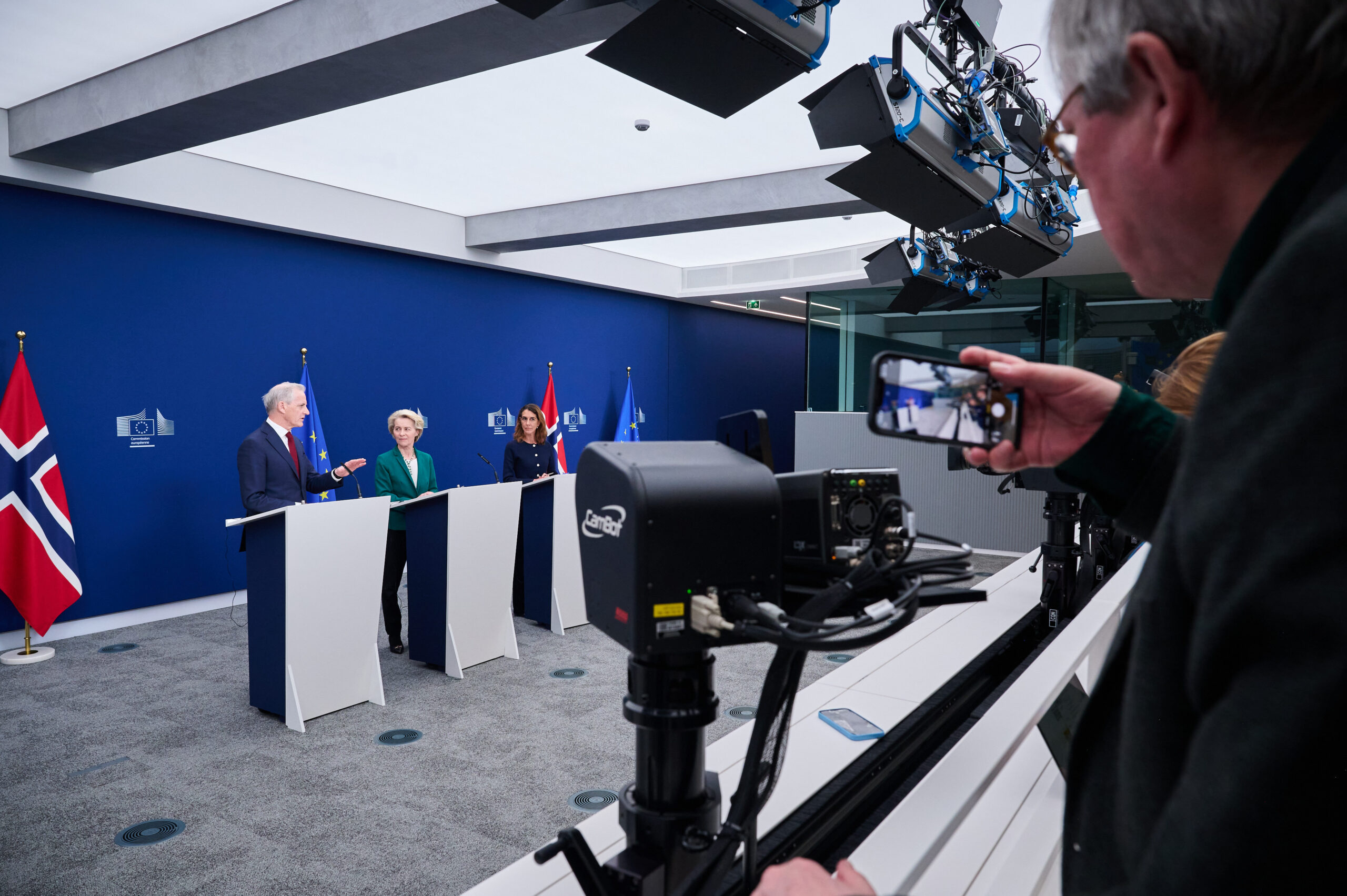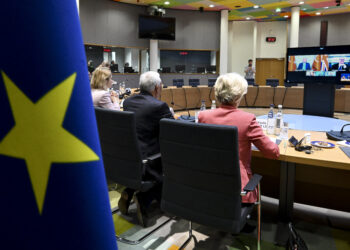Brussels – “Norway is a member of the European family. Our cooperation makes us stronger.” With these words, the President of the European Commission, Ursula von der Leyen, welcomed the Norwegian Prime Minister, Jonas Gahr Støre, today (April 7). Support for Ukraine, strengthening the defence industry, and U.S. tariffs were the issues on the table. Crises and extraordinary periods bring Oslo once again closer to Brussels and and could change the troubled history of Norway’s membership in the European club.
The Scandinavian country first applied to join the EU in 1967, initiating accession negotiations. However, the Norwegian people rejected entry into the 27 in two referendums, the first in 1972 and the second in 1994, after a second request in 1992. Since then, Oslo’s request has remained frozen but not withdrawn, and Europe’s largest oil and gas-producing country remains closely anchored to the EU because it is part of the European Economic Area (EEA) and the Schengen Area. Prime Minister and leader of the Norwegian Labor Party Støre told reporters at a press point with von der Leyen that “In recent months,” in the face of new challenges, “we have met or talked almost every week.”

In particular, the need to reply in a coordinated manner to the earthquake caused by the imposition of Trumpian tariffs—15 per cent to Norway, 20 per cent to the EU—further strengthens ties between Oslo and Brussels. “The EU is by far our most important trading partner; 70 per cent of our exports go to the domestic market. We will do everything we can to contribute to the integrity of this market,” Støre said, assuring that Norway will “clearly follow the response” that the EU will put in place.
The chairwoman of the EU executive also stressed that on defence, “Norway will be able to participate in joint procurement” proposed under the SAFE instrument (the EU’s 150 billion fund for soft loans to member states) and that “Norwegian industries will be treated like EU ones.” The two leaders then assessed progress on implementing the Green Alliance signed in April 2023: “We are turning words into reality through concrete projects, from offshore wind to hydrogen and carbon capture and storage,” von der Leyen insisted, announcing that she agreed to “accelerate coordination between Norway, member states, and our companies to get even more projects up and running.”
In the long tug-of-war between the European bloc and Oslo, external factors have always played a major role in reviving the discourse on possible membership. And now, five months before parliamentary elections, the debate may slowly reopen. Last November, 30 years after the second referendum that rejected EU entry, several opinion polls showed a slow but steady increase in the share of people in favour of membership. Opposition to membership seems to have declined from 70 per cent in 2016 to 46.7 per cent in 2024. At the same time, support for joining the EU bloc increased by about 20 percentage points to 35 per cent of the Norwegian population.
The Russian war in Ukraine and growing concerns about national security, Trump’s threats to Greenland and the renewed interest in the Arctic region, the future of the national oil sector, agriculture and fishing, and the most recent tariffs are all crises that call into question the effectiveness of participation in the European Economic Area alone to protect the Norwegian population. Moreover, being part of the EEA requires Norway to adopt a large number of regulations decided by the EU without being able to affect their writing and approval in any way.
In an interview with Financial Times, the leader of the opposition to Støre’s centre-labour government, Erna Solberg, said the conservatives would prefer “to have a say” rather than the current situation of merely complying with European standards. “If a window opens to apply, we will do so. I believe Norway would be a better country if we were a member of the EU,” she added. The membership talk has peeked up again, and it could become one of the main—and most divisive—issues in the campaign toward the Sept. 8 elections.
English version by the Translation Service of Withub







